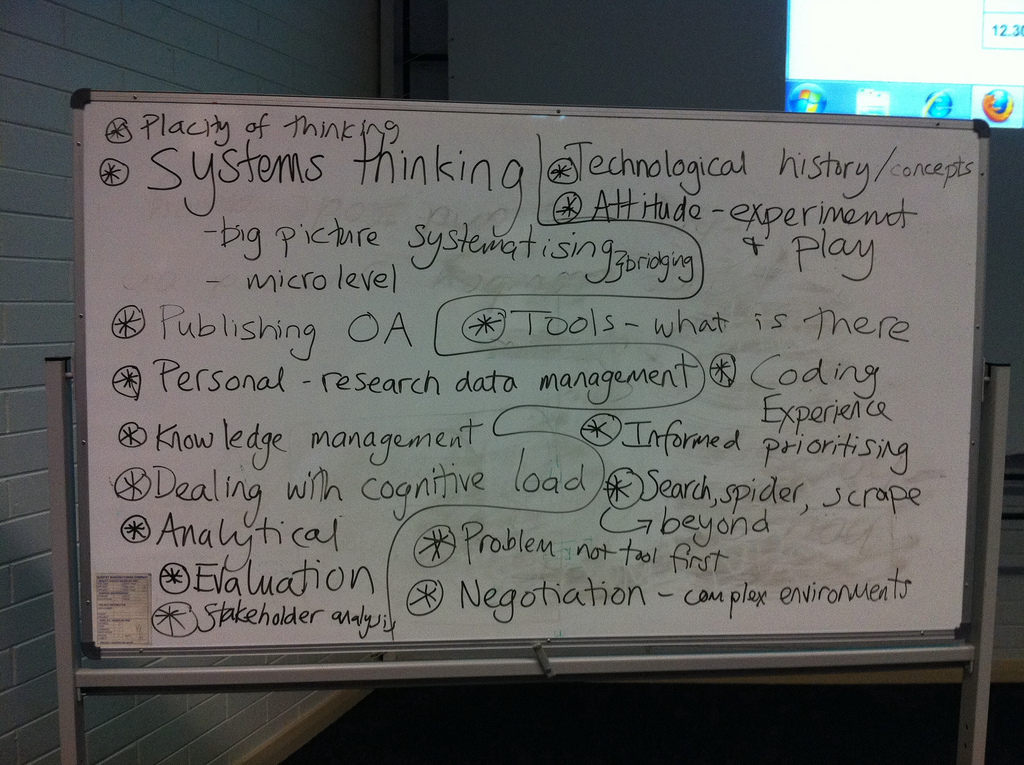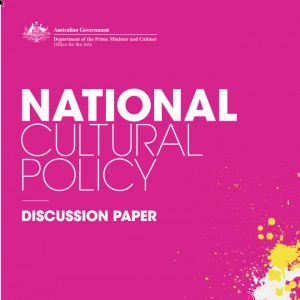I am so, so lucky and happy. I found out this morning that I have been awarded a Mellon THATcamp fellowship to help toward my attendance at the Bootcamp part of THATCampCanberra at the end of the week. Thank you to the folk at the Center for History and New Media at George Mason University who administer the Fellowship (and gave the world Zotero, too).
I have put up a couple of proposals for sessions that I am happy to facilitate during the unconference. It is really me saying “this is what I want to learn from you clever folk, please share”, so if I end up going to other sessions, that is just fine. If you read this blog and will not be at THATcamp, but would like to throw some ideas in the mix, feel free to do so in the comments and I will bring them up if the session runs.
Session suggestion 1: Skills to practice and support the Digital Humanities
FORMAT: Facilitated talkfest producing agreed list of specific skills
This may be better as two topics, but many of the skills will be the same.
PART ONE – Improving technological literacy for humanities researchers
What specific skills do humanities researchers need to be sufficiently technologically literate to take advantage of possibilities offered by the digital humanities?
Whose responsibility is it to help them gain these skills?
What model would work to help support researchers to gain these skills? Is there a role for research institutions to provide:
- digital tools sandboxes for researchers
- facilities like the Scholars Lab at UVa
- tech skills clinics in the same model as writing clinics
- support for digital humanities champions and mentors
PART TWO – Preparing professionals to support digital humanities
Information Studies courses at universities claim to be producing graduates who are specialists in metadata, database design, taxonomies and information design. They claim that graduates will be experts in collecting, organising and retrieving digital and physical information.
What specific skills should be taught in Information Studies courses so that graduates can support the digital humanities?
How can libraries and librarians provide better support for digital humanities?
Have librarians and Information Studies departments missed to boat at becoming useful in this arena, or is there still a chance to be usefully involved? If so, what do we need to do?
Session suggestion 2: Sharing the shoeboxes under the bed
The phrase “shoeboxes under the bed” is borrowed from Jo Ransom, the driving force behind Kete Horwhenua and one of my top role models about what it means to be a librarian with both heart and deadly tech skills.
SESSION FORMAT: Facilitated talkfest
This is a tentative exploration of ideas, so if anyone specialises in this, please jump in.
Official government information, historical records and newspaper articles tell part of the story of a community. The digital humanities community is working well to collect and expose this data.
Many communities have “shoeboxes under the bed” containing personal information like family photographs, recipes, memorabilia and artworks. People can be filmed or recorded telling their personal stories. Amateur historians, hobby genealogists, community arts projects, library local history collections, ABC Open are all involved in trying to capture these stories.
“Build it and they will come” models for harvesting this type of data have not proved effective. The internet is littered with beautiful looking sites with great architecture that have no data beyond the initial seeding data that was collected before grant money ran out.
Kete Horowhenua is an example of a successful site collecting many different digital formats and community metadata, harvesting the shoeboxes under the bed.
QUESTIONS FOR DISCUSSION
What is the best way to create a project to harvest these stories that has community ownership ?
Is there value in creating a model or guidelines to create an easy-to-implement platform for communities that want to harvest their shoeboxes? What features need to be included beside:
- rights management
- remix
- best metadata schema
- conversion to standardised file formats
- exposure to search engines
How would one co-locate these records with official datasets so that together they tell a complete story?
Is there a role for public libraries as physical places to collect these stories and as virtual places to create platforms for these stories?







